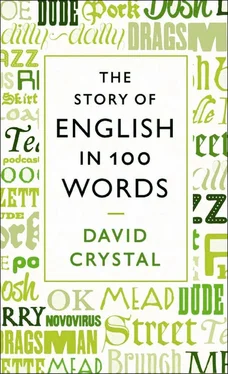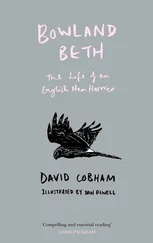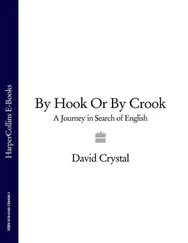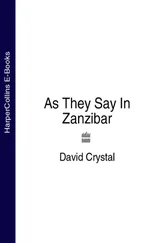Some lea names refer to what grows in the clearing. It’s obvious what this is in the case of Clover-ley ; slightly less obvious in Farleigh (ferns) and Ridley (reeds). And when the farming started, the name sometimes tells us what was grown (as in Wheatley and Flaxley ) or what animals were around (as in Durley , Gateley , Horsley and Shipley , for deer, goats, horses and sheep, respectively). Birds and insects are remembered too, in such names as Finchley , Crawley (crows) and Beeleigh .
Place-names are an integral part of a language, and should always be represented in a wordbook. Lea is an example of an Anglo-Saxon place-name element. Other such elements are:
ham — ‘homestead’, as in Birmingham and Nottingham
ing — ‘people of’, as in Reading and Worthing
ceaster — ‘Roman town, fort’, as in Chester and Lancaster
tun — ‘enclosure, village’, as in places ending in -ton or - town
Each wave of invaders brought its own naming practices. The Vikings settled all over the eastern side of England, establishing hundreds of villages ending in -by — the Norse word for ‘farmstead’ — as in Derby , Rugby and Grimsby . Several French names (such as Beaulieu and Devizes ) arrived in the early Middle Ages.
We always have to be careful, though, when exploring place-names. Often words with different origins have ended up with the same spelling. For example, rivers named Lea or Lee are hardly going to mean ‘forest clearing’. We have to look for the meaning of water names elsewhere. There was a Celtic form lug -, meaning ‘bright or light’, which was also used as the name of a deity. So River Lea may originally have meant ‘river dedicated to the god Lugus’ or simply ‘river which was bright and sparkling’.
 3. And — an early abbreviation (8th century)
3. And — an early abbreviation (8th century)
Early in the 8th century, monks at the monastery of St Augustine in Canterbury wrote out a long list of English translations of Latin words, in roughly alphabetical order. Towards the end, in the section on words beginning with U, we find the Latin phrase ultroque citroque — in modern English we’d say ‘hither and thither’. The scribe must have been feeling tired that day, because he glosses it wrongly as hider ond hider . The second h should have been a d . But the phrase is interesting for a different reason: ond is an old way of spelling and . Doubtless the Anglo-Saxons used the word a lot in their speech, as we do today; but in these ancient glossaries we see it written down for the first time.
Why get so excited over a ‘little word’ like and ? In most wordbooks, it’s the ‘content words’ that attract all the attention — the words that have an easily statable meaning, like elephant and caravan and roe . The books tend not to explore the ‘grammatical words’ — those linking the units of content to make up sentences, such as in , the and and . That’s a pity, because these ‘little words’ have played a crucial role in the development of English. Apart from anything else, they’re the most frequently occurring words, so they’re in our eyes and ears all the time. In our eyes? The four commonest written words in modern English are the , of , and and a . In our ears? The four commonest spoken words are the , I , you and and . In Old English, and is there from the very beginning, and when it appears it’s often abbreviated.
We tend to shorten very common words when we write them. It is becomes it’s . Very good becomes v good . You becomes u (especially in internet chat and texting). Postscript becomes PS . The shortened form of and is so common that it’s even been given its own printed symbol: &, the ‘ampersand’. The modern symbol is historically a collapsed version of the Latin word et : the bottom circle is what’s left of the e , and the rising tail on the right is what’s left of the t . The word ampersand is a collapsed form too: it was originally and per se and — a sort of shorthand for saying ‘& by itself = and’.
When did people start shortening and ? We find it in some of the earliest Old English manuscripts. It’s written with a symbol that looks a bit like a modern number 7, but with the vertical stroke descending below the line. In some documents, such as wills and chronicles, where strings of words are linked by ‘and’, we can see 7s all over the page. They’re especially noticeable when they appear at the beginning of a sentence.
And at the beginning of a sentence? During the 19th century, some schoolteachers took against the practice of beginning a sentence with a word like but or and , presumably because they noticed the way young children often overused them in their writing. But instead of gently weaning the children away from overuse, they banned the usage altogether! Generations of children were taught they should ‘never’ begin a sentence with a conjunction. Some still are.
There was never any authority behind this condemnation. It isn’t one of the rules laid down by the first prescriptive grammarians. Indeed, one of those grammarians, Bishop Lowth, uses dozens of examples of sentences beginning with and . And in the 20th century, Henry Fowler, in his famous Dictionary of Modern English Usage , went so far as to call it a ‘superstition’. He was right. There are sentences starting with And that date back to Anglo-Saxon times. We’ll find them in Chaucer, Shakespeare, the King James Bible, Macaulay and in every major writer. And God said, Let there be light … Joining sentences in this way has been part of the grammatical fabric of English from the very beginning. That’s one of the lessons the story of and teaches us.
 4. Loaf — an unexpected origin (9th century)
4. Loaf — an unexpected origin (9th century)
Something to eat; something to drink. Words to do with nutrition always play an important part in language history. In particular, the essential role of bread in society, known since prehistoric times, is reflected in a variety of idioms. In English, it can stand for ‘food’, as in breadwinner and the plea for daily bread (in the Lord’s Prayer). It can mean ‘money’. It can identify a state of mind ( knowing on which side one’s bread is buttered ) or a level of achievement ( the best thing since sliced bread ).
The surprising thing is that bread didn’t have its modern meaning in Old English. In one of the word-lists compiled by Anglo-Saxon monks, we find breadru translating Latin frustra — ‘bits, pieces, morsels’. What seems to have happened is that the word came to be applied to ‘pieces of bread’ and eventually to ‘bread’ as a substance. It’s still used in this way in some dialects: you might still hear someone in Scotland asking for a piece , meaning ‘a piece of bread’.
So how did the Anglo-Saxons talk about bread? In another list we find a word from the Bible, manna , translated by the phrase heofenlic hlaf — ‘heavenly bread’. We would know hlaf today as loaf . The h stopped being pronounced at the end of the Anglo-Saxon period, and the long ‘ah’ vowel gradually changed into an ‘oh’ vowel during the Middle Ages. While that was happening, hlaf came to be more restricted in meaning, eventually being used for just the undivided, shaped amount of bread that we now call a loaf .
Читать дальше

 3. And — an early abbreviation (8th century)
3. And — an early abbreviation (8th century) 4. Loaf — an unexpected origin (9th century)
4. Loaf — an unexpected origin (9th century)










